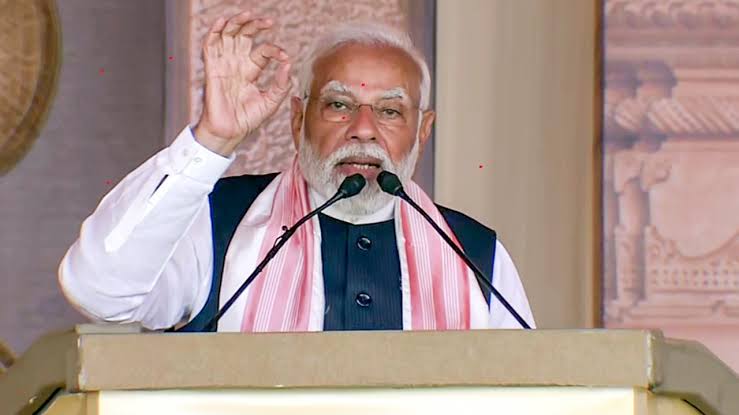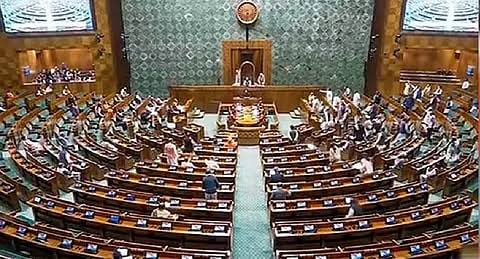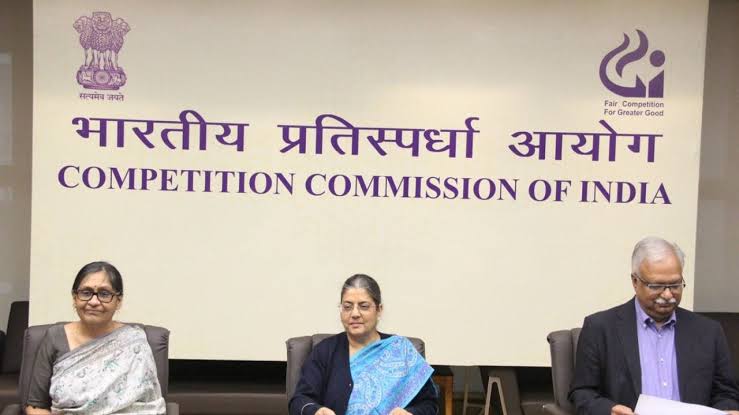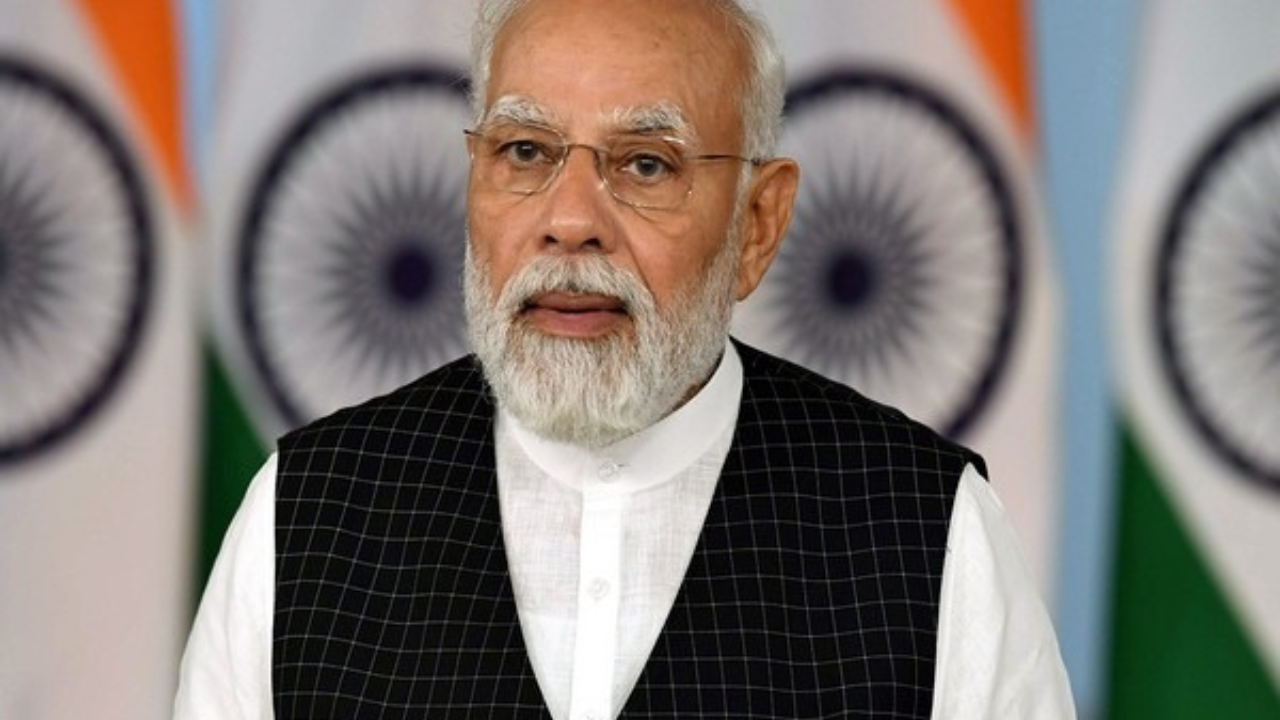Prime Minister Narendra Modi addressed the India Energy Week 2025 through a video message, emphasizing the critical role of energy in shaping India’s future. Speaking to a distinguished gathering at Yashobhoomi, he warmly welcomed participants from India and abroad, underscoring their significance in advancing India’s energy ambitions. His speech reflected both optimism and determination as he laid out India’s vision for energy self-sufficiency and sustainability.
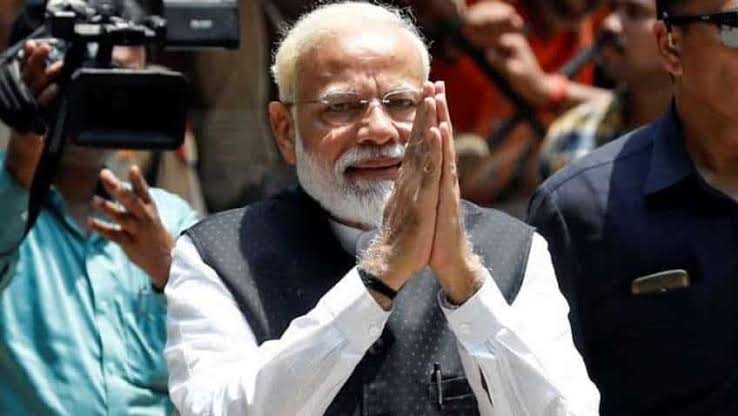 Acknowledging global sentiments that the 21st century belongs to India, the Prime Minister highlighted the nation’s remarkable economic growth and its influence on global development. He stressed that India’s energy sector is built on five key pillars—resource utilization, innovation, economic strength, strategic geographical advantages, and a firm commitment to sustainability. These factors, he noted, are unlocking new opportunities, making India a global leader in clean energy and green development.
Acknowledging global sentiments that the 21st century belongs to India, the Prime Minister highlighted the nation’s remarkable economic growth and its influence on global development. He stressed that India’s energy sector is built on five key pillars—resource utilization, innovation, economic strength, strategic geographical advantages, and a firm commitment to sustainability. These factors, he noted, are unlocking new opportunities, making India a global leader in clean energy and green development.
Looking ahead, he outlined the milestones that India aims to achieve over the next two decades, emphasizing that the coming five years are particularly crucial. India has set ambitious targets, including adding 500 gigawatts of renewable energy capacity, achieving net zero carbon emissions for Indian Railways, and producing five million metric tons of green hydrogen annually by 2030. While these goals may appear challenging, he expressed confidence that India’s past achievements have laid a strong foundation for their realization.
Over the last decade, India has emerged as a powerhouse in clean energy. From being the tenth-largest economy in the world, it has risen to the fifth position. The country’s solar energy capacity has increased thirty-two times, making it the third-largest solar power producer globally. India is also the first G20 nation to have met the Paris Agreement targets ahead of schedule. Ethanol blending, which has reached 19%, has significantly reduced carbon emissions, boosted farmer incomes, and saved foreign exchange. By October 2025, India aims to achieve a 20% ethanol mandate, positioning itself as a global leader in biofuels. The establishment of the Global Biofuels Alliance during India’s G20 presidency, now comprising 28 nations and 12 international organizations, is another milestone in India’s commitment to sustainable energy solutions.
The Prime Minister highlighted the country’s ongoing efforts to unlock the full potential of its hydrocarbon resources. With major discoveries and an expanding gas pipeline network, India is set to increase its share of natural gas in the energy mix. As the world’s fourth-largest refining hub, India is also working toward expanding its refining capacity by 20%. Policies such as the Open Acreage Licensing Policy (OALP) and reforms in the Oilfields Regulation & Development Act have created a stable and investor-friendly environment, encouraging exploration and boosting production.
He emphasized India’s commitment to “Make in India” and the development of local supply chains, particularly in solar panel and battery manufacturing. The country’s solar photovoltaic (PV) module manufacturing capacity has expanded from 2 gigawatts to approximately 70 gigawatts in just a decade, thanks to initiatives like the Production Linked Incentive (PLI) scheme. Additionally, India is making strides in battery storage and electric mobility, with the government exempting several essential materials for EV and mobile phone batteries from customs duties. The recently launched National Critical Minerals Mission aims to establish a resilient supply chain, ensuring India’s self-reliance in key minerals and components.
One of the most inspiring aspects of the address was the government’s commitment to making ordinary citizens active participants in the energy revolution. The PM Suryagarh Free Electricity Scheme, launched last year, is not just about energy production—it is also fostering skill development, creating new service ecosystems, and attracting investment. This initiative empowers farmers and households, transforming them into contributors to India’s energy security.
As he concluded, Prime Minister Modi reaffirmed India’s commitment to balancing energy growth with environmental responsibility. He expressed confidence that India Energy Week 2025 would generate meaningful discussions and concrete outcomes, strengthening India’s position as a global leader in sustainable energy. His message was not just about policies and numbers but a call to action—an invitation to stakeholders worldwide to be part of India’s dynamic and rapidly evolving energy journey.

